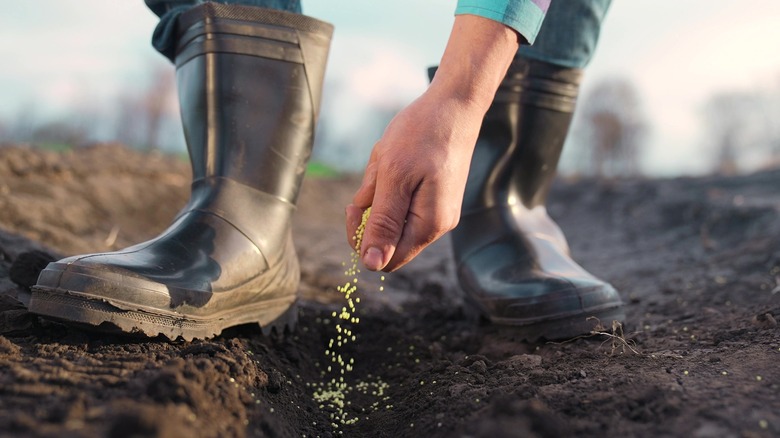How Farmers Could Benefit From The Inflation Reduction Act
President Biden is expected to sign off on the Inflation Reduction Act (IRA), for which the Senate voted last week. As CBS reported, it was a wide-ranging act that will, among other initiatives, reduce carbon emissions by 40% by 2030, implement a 15% minimum tax on corporations that make over $1 billion, and enable Medicare to negotiate prices with drug companies. Even at this overview, farmers would benefit as the climate crisis directly impacts their ability to grow crops. However, the bill takes a special interest in the agricultural industry.
Farm Progress writes that about $40 billion of the money used to combat climate change will be given to the United States Department of Agriculture (USDA) to invest in climate-smart agriculture as well as other initiatives dedicated to greening rural communities and conserving the countryside. According to The Wall Street Journal, $20 billion is budgeted to subsidize farms and ranches as they transition to more environmentally friendly practices. These mostly take the form of various grants, like the Environmental Quality Incentives Program which has received $8.45 billion to give to farmers who are taking up practices that will reduce greenhouse emissions (via Farm Progress).
The act is not without criticism
The IRA is the largest climate bill in the history of the United States. This is in part due to the plans to invest in sustainable farming. However, the bill has received some criticism. Some of it comes from expected corners. Farm Progress relays how John Boozman, a Republican senator for Arkansas and member of the Senate Agriculture Committee, decried the Democrats for not making the agricultural investment a bipartisan matter. Historically, farm bills have been negotiated between parties.
Civil Eats shares the critique that the targets of the IRA's investments miss the actual sustainable solutions. "[IRA] fails to focus on the primary levers that could truly affect emissions from agriculture and the food system—like reducing food waste, helping to shift diets, and preventing big agricultural emissions in the first place, especially methane from cattle and nitrous oxide from fertilizers and manure," Jonathan Foley, executive director of Project Drawdown, explains.
Without the promise of investments in these areas, farmers and, more importantly, corporate farms, are unlikely to alter the practices.

